Are you concerned about how your personal information is handled? In today's digital age, understanding your data protection rights is more important than ever. Whether it's a question about how your data is stored or who has access to it, knowing the right questions to ask can empower you. Join us as we explore a comprehensive letter template for inquiring about data protection practices, ensuring your voice is heard and your rights are upheld.
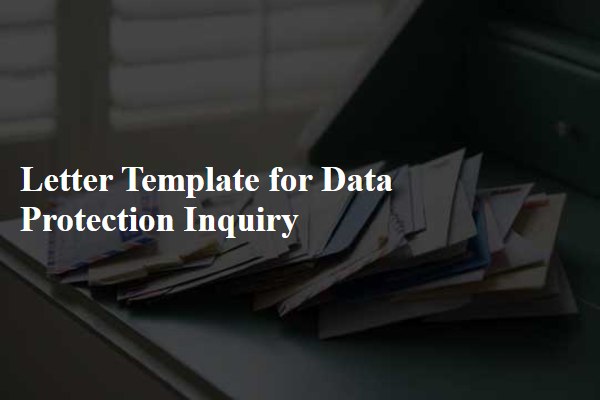
Privacy rights and regulations
Data protection inquiries involve understanding privacy rights and regulations that safeguard personal information. The General Data Protection Regulation (GDPR) outlines these rights for citizens in the European Union, emphasizing the importance of consent and transparency in data processing. Organizations handling personal data are required to implement strict measures to ensure compliance, including data minimization and purpose limitation principles. Privacy notices must inform individuals about their rights, like access, rectification, and erasure of their data, while data protection impact assessments help identify risks in data handling practices. Violations can lead to significant penalties, with fines reaching up to 4% of annual global turnover for companies that fail to protect personal data adequately.
Data collection and usage policies
Data protection inquiries typically focus on understanding how personal information is collected, stored, and used by organizations. Understanding data collection policies is crucial, especially in context of privacy regulation compliance, such as the General Data Protection Regulation (GDPR) in the European Union. Organizations must transparently communicate their practices regarding personal data. Key aspects include details like the type of data collected (such as names, email addresses, and identification numbers), purposes of usage (for example, marketing, service improvement, customer support), data retention periods (which can vary from a few months to several years), and third-party sharing policies (essential for understanding potential risks). Users have rights regarding their data, including access and deletion requests, emphasizing the need for clear and accessible privacy policies to build trust and ensure transparency.
Data retention and storage practices
Data protection inquiries addressing data retention and storage practices are crucial in today's digital landscape. Organizations, such as tech companies or financial institutions, often hold personal information on individuals for varying periods, influenced by regulatory frameworks like the General Data Protection Regulation (GDPR) in the European Union. Each entity, whether a cloud storage provider or database management service, must implement clear policies detailing the duration specific types of data are retained, typically ranging from a few months to several years, depending on the data's nature and purpose. Additionally, secure storage solutions include encryption methods and access controls to safeguard sensitive information from unauthorized access. Understanding these retention practices allows individuals to exercise their rights properly, ensuring compliance with legal obligations and protecting personal data integrity.
Third-party data sharing
Individuals concerned about third-party data sharing should submit a data protection inquiry to the relevant organization. The inquiry should reference specific regulations, such as the General Data Protection Regulation (GDPR), enacted in the European Union in May 2018. Individuals must request clarity on what personal data, including names, email addresses, and other identifiable information, has been shared. It is essential to inquire about the third parties involved, such as data brokers or marketing firms, and the purpose of this sharing, which could include targeted advertising or research purposes. Additionally, individuals should ask about security measures in place to protect shared data and request information on their rights regarding access, rectification, and deletion of their data. The inquiry should be directed to the organization's data protection officer or relevant department for a comprehensive response.
Contact information for Data Protection Officer
The Data Protection Officer (DPO) plays a crucial role in ensuring compliance with data protection regulations, including the General Data Protection Regulation (GDPR), which was enacted in May 2018 across the European Union. Organizations must provide accessible contact information for the DPO to facilitate inquiries related to data privacy. For instance, a typical DPO contact could be located at the headquarters of a corporation in London, UK, with direct email available for inquiries, such as dpo@organization.com, and a dedicated phone number like +44 20 7946 0958 for urgent matters. The DPO should also be well-versed in data subjects' rights, including the right to access personal data, the right to rectify inaccurate data, and the right to erasure (commonly referred to as the "right to be forgotten"). Furthermore, maintaining transparency about data processing activities enhances organizational trust and compliance with legal requirements.
Letter Template For Data Protection Inquiry Samples
Letter template of data protection inquiry concerning data security measures.
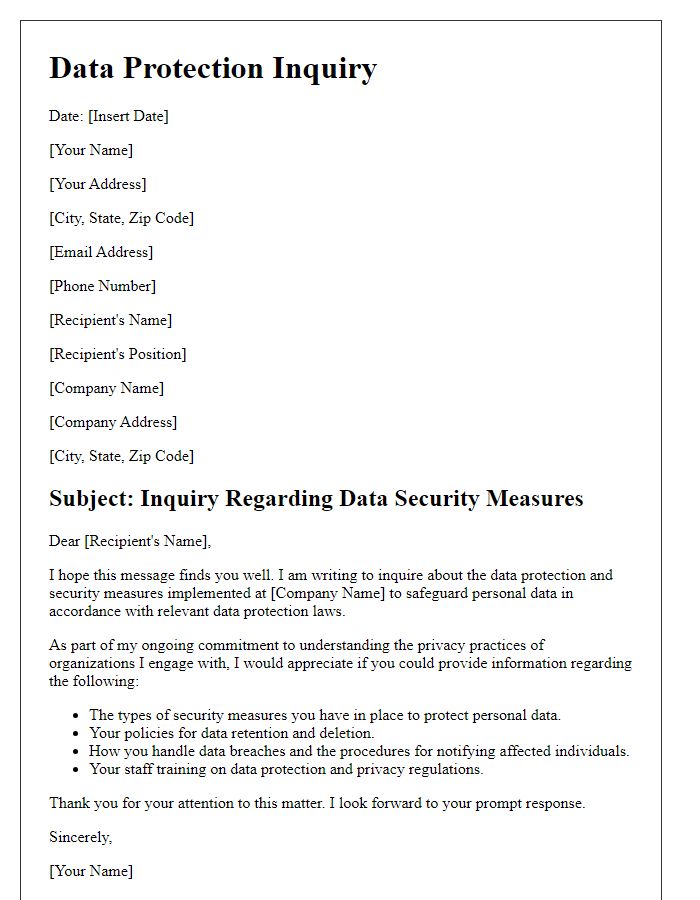
Letter template of data protection inquiry related to data transfer policies.
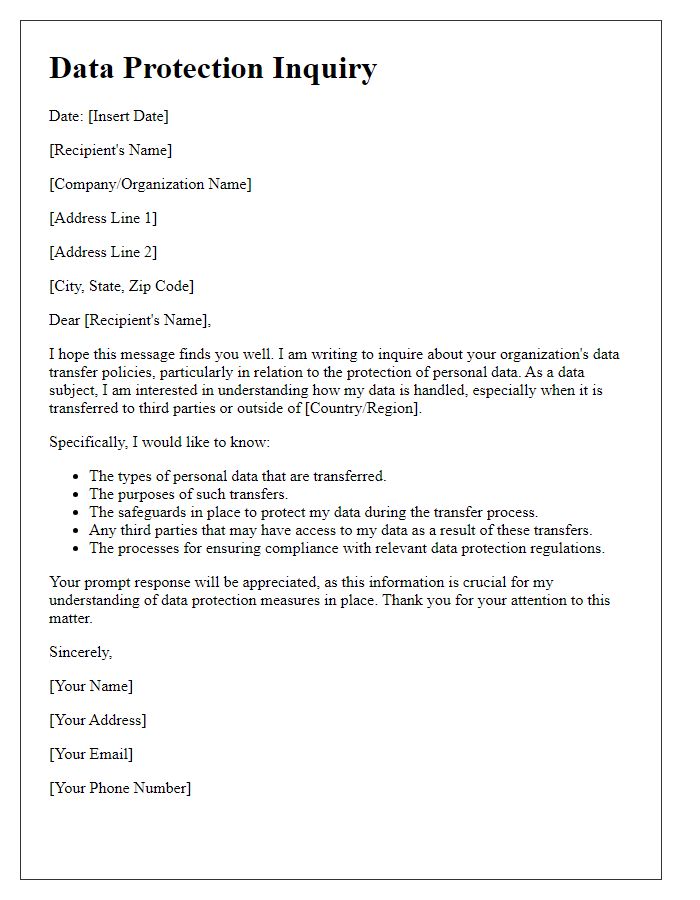

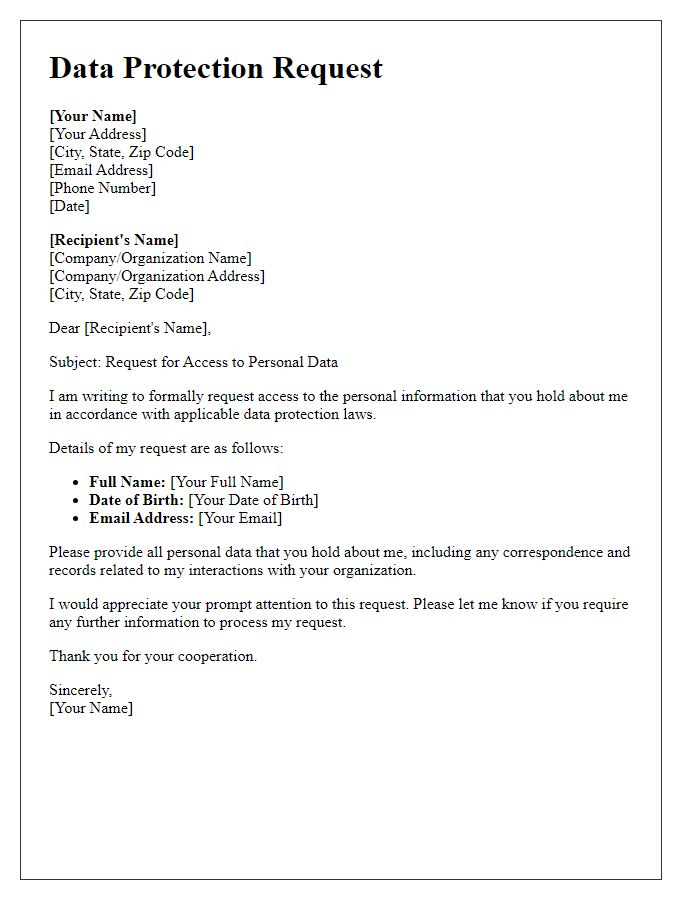
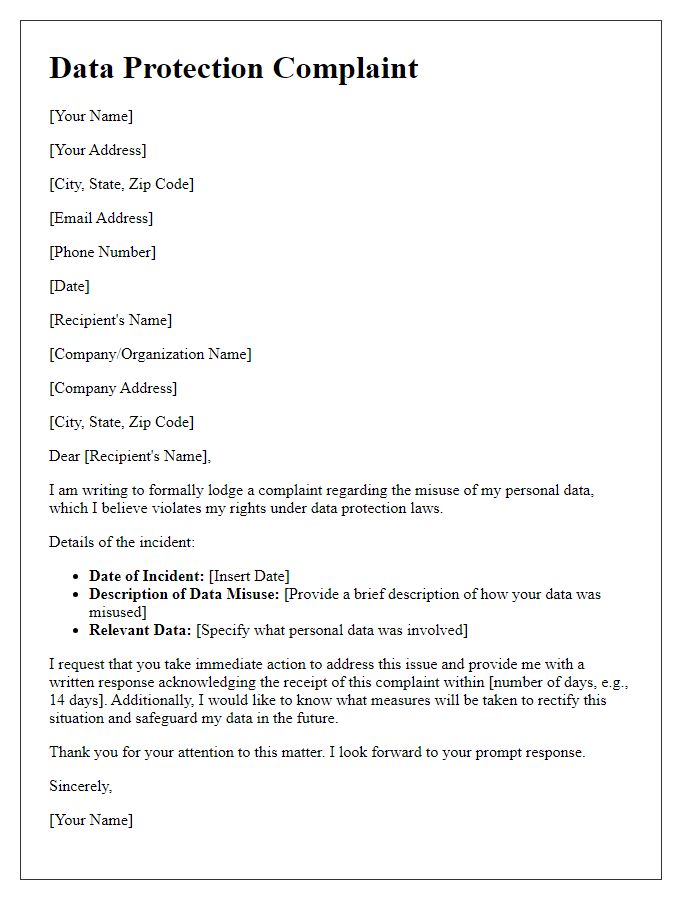
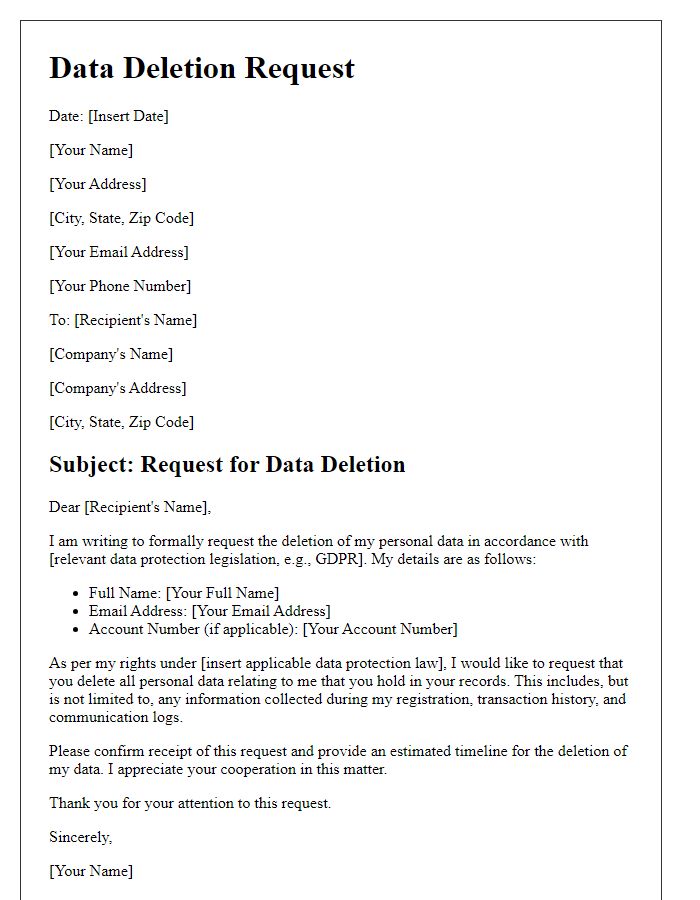
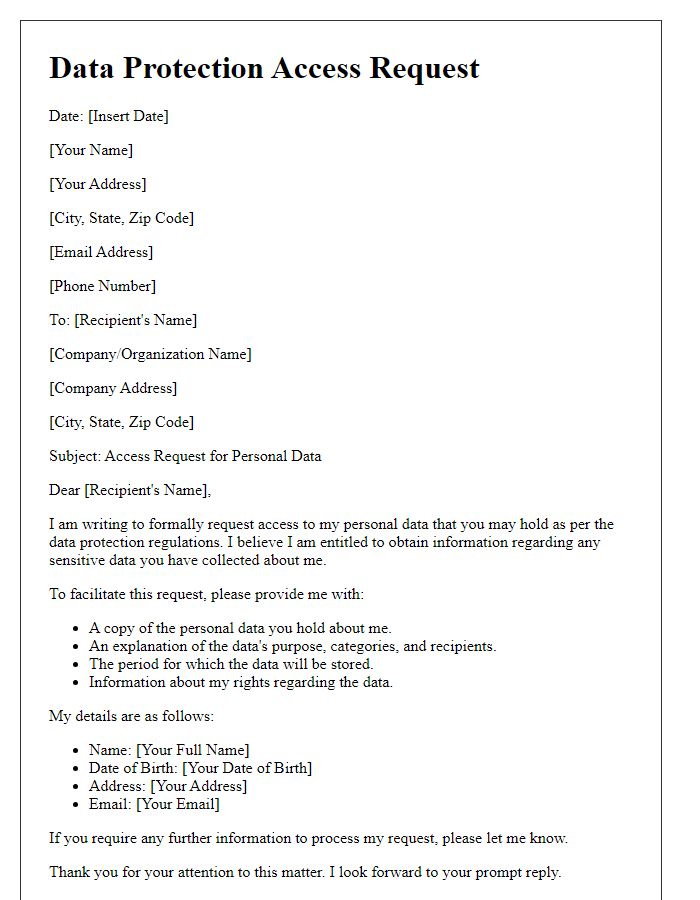
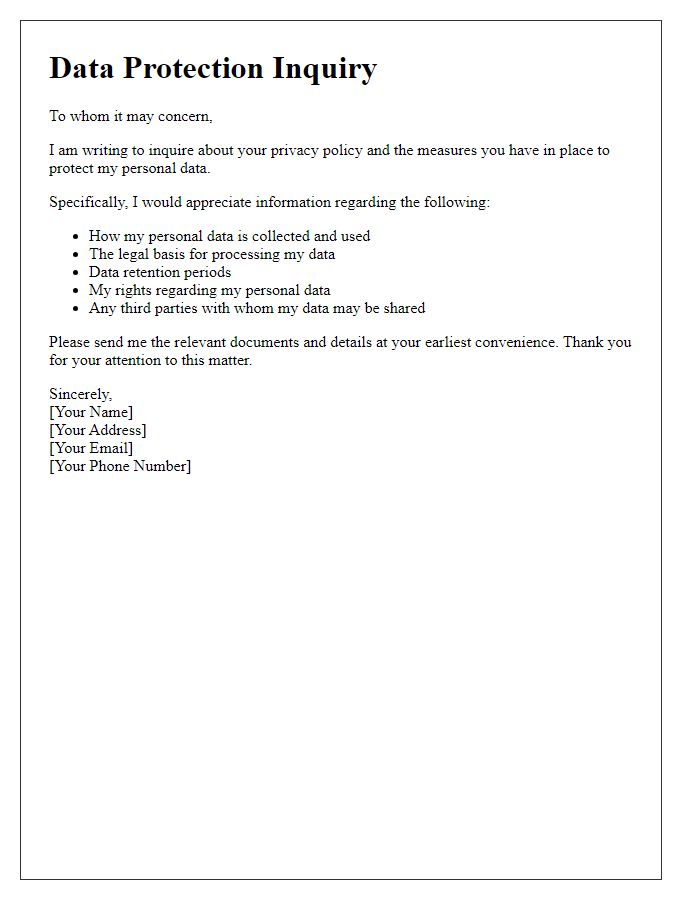
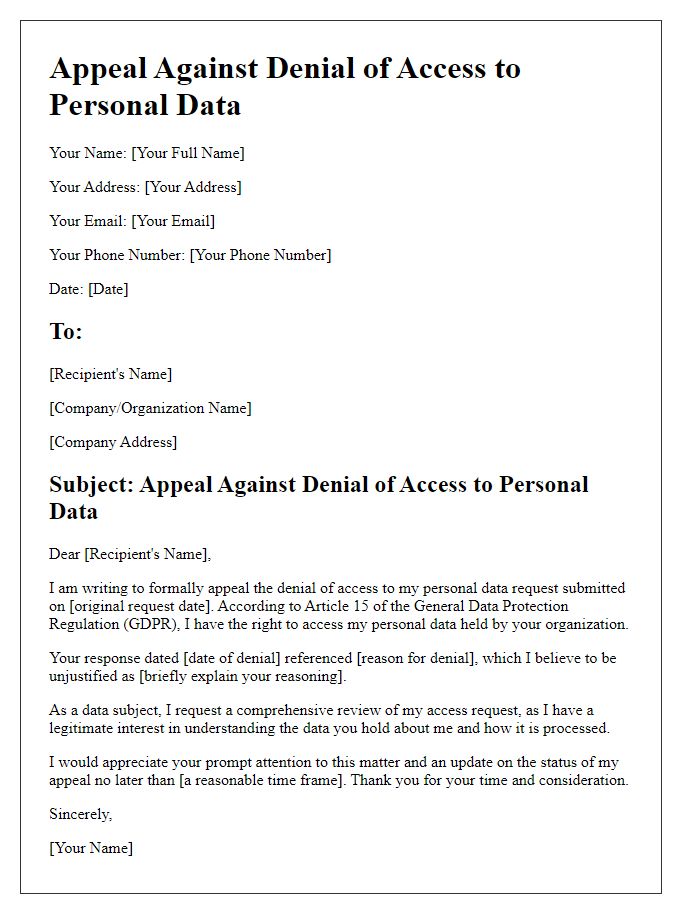
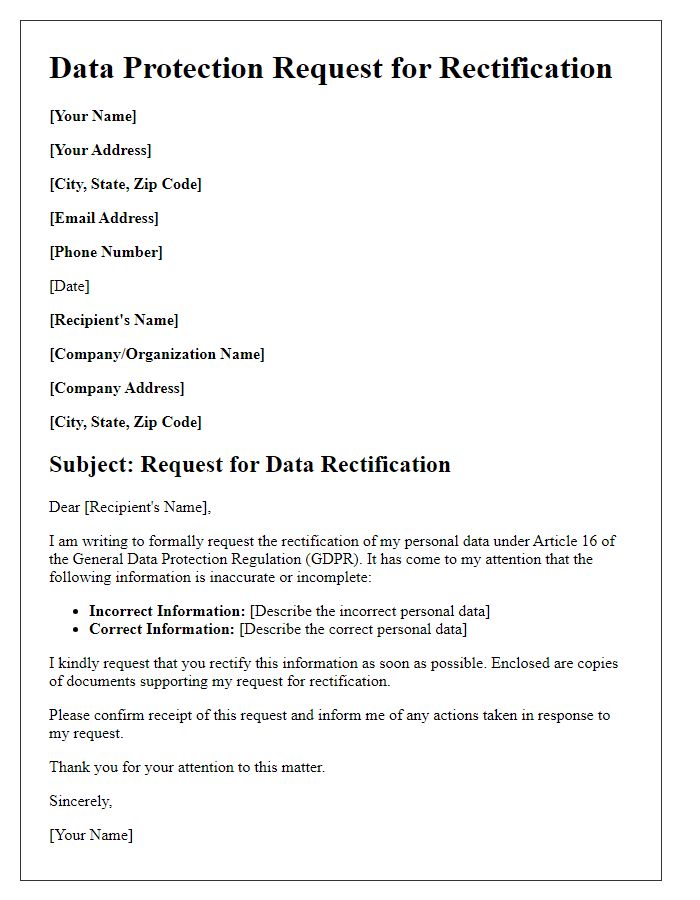
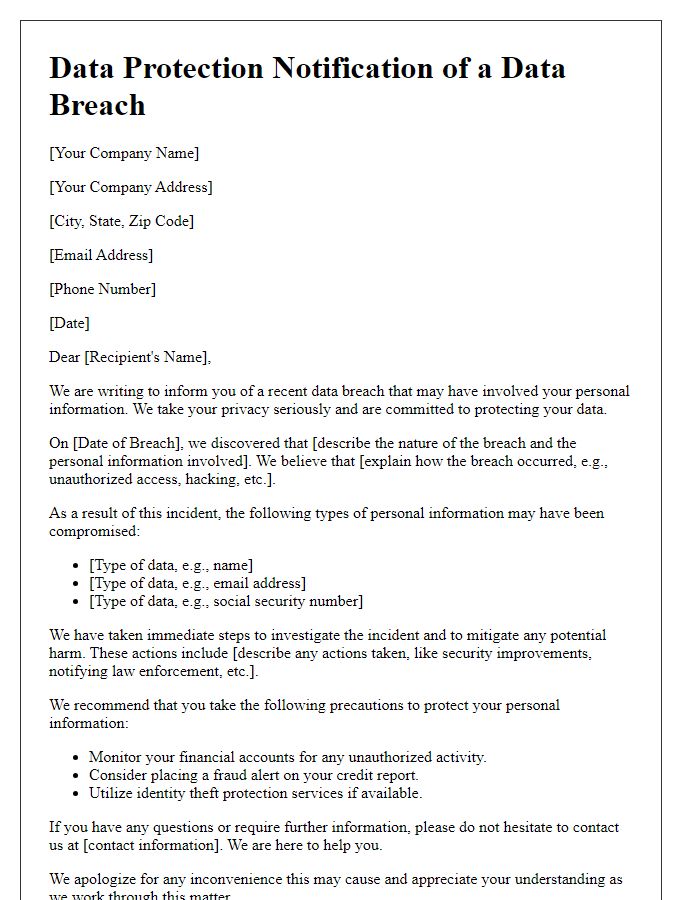


Comments